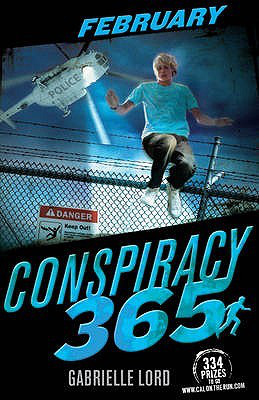 At the root of all war is fear: not so much the fear men have of one another as the fear they have of everything. It is not merely that they do not trust one another; they do not even trust themselves. If they are not sure when someone else may turn around and kill them, they are still less sure when they turn around and kill themselves. They cannot trust anything, because they have ceased to believe in God.
At the root of all war is fear: not so much the fear men have of one another as the fear they have of everything. It is not merely that they do not trust one another; they do not even trust themselves. If they are not sure when someone else may turn around and kill them, they are still less sure when they turn around and kill themselves. They cannot trust anything, because they have ceased to believe in God.
It is not only our hatred of others that is dangerous but also and above all our hatred of ourselves: particularly that hatred of ourselves which is too deep and too powerful to be consciously faced. For it is this which makes us see our own evil in others and unable to see it in ourselves.
When we see crime in others, we try to correct it by destroying them or at least putting them out of sight. It is easy to identify the sin with the sinner when he is someone other than our own self. In ourselves, it is the other way round; we see the sin, but we have great difficulty in shouldering responsibility for it. We find it very hard to identify our sin with our own will and our own malice. On the contrary, we naturally tend to interpret our immoral act as an involuntary mistake, or as the malice of spirit in us that is other than ourself. Yet at the same time we are fully aware that others do not make this convenient distinction for us. The acts that have been don by us are, in their eyes, our acts and they hold us fully responsible.
What is more, we tend unconsciously to ease ourselves still more of the burden of guilt that is in us, by passing it on to somebody else. When have I done wrong, and have excused myself by attributing the wrong to another who is unaccountably in me, my conscience is not yet satisfied. There is still too much left to be explained. The other in myself is too close to home. The temptation is, then, to account for my fault by seeing an equivalent amount of evil in someone else. Hence I minimize my own sins and compensate for doing so by exaggerating the faults of others.
As if this were not enough, we make the situation much worse by artificially intensifying our sense of evil, and by increasing our propensity to feel guilt even for things which are not in themselves wrong. In all these ways we build up such an obsession with evil, both in ourselves and in others, that we waste all our mental energy trying to account for this evil, to punish it, to exorcise it, or to get rid of it in any way we can. We drive ourselves mad with our preoccupation and in the end there is no outlet left but violence. We have to destroy something or someone. By that time we have created for ourselves a suitable enemy, a scapegoat in whom we have invested all the evil in the world. He is the cause of every wrong. He is the fomenter of all conflict. If he can only be destroyed, conflict will cease, evil will be done with, there will be no more war.
This kind of fictional thinking is especially dangerous when it is supported by a whole elaborate pseudo-scientific structure of myths, like those which Marxists have adopted as their ersatz for religion. But it is certainly no less dangerous when it operates in the vague, fluid, confused and unprincipled opportunities which substitutes in the West for religion, for philosophy and even for mature thought.
When the whole world is in moral confusion, when no one knows any longer what to think, and when in fact, everybody is running away from the responsibility of thinking, when man makes rational thought about moral issues absurd by exiling himself entirely from realities into the realm of fictions, and when he expends all his efforts in constructing more fictions with which to account for his ethical failures, then it becomes clear that the world cannot be saved from global war and global destruction by the mere efforts and good intentions of peacemakers. In actual fact, everyone is becoming more and more aware of the widening gulf between good purposes and bad results, between efforts to make peace and the growing likelihood of war. It seems that no matter how elaborate and careful the planning, all attempts at international dialogue end in more and more ludicrous failures. In the end no one has any more faith in those who even attempt dialogue. On the contrary, the negotiators, with all their pathetic good will, become the objects of contempt and of hatred. It is the men of good will, the men who have made their poor efforts to do something about peace, who will in the end be the most mercilessly reviled, crushed, and destroyed as victims of the universal self-hatred of man which they have unfortunately only increased by the failure of their good intentions.
– New Seeds Of Contemplation, Thomas Merton, ‘The Root Of All War Is Fear’
Advertisements Share this:





